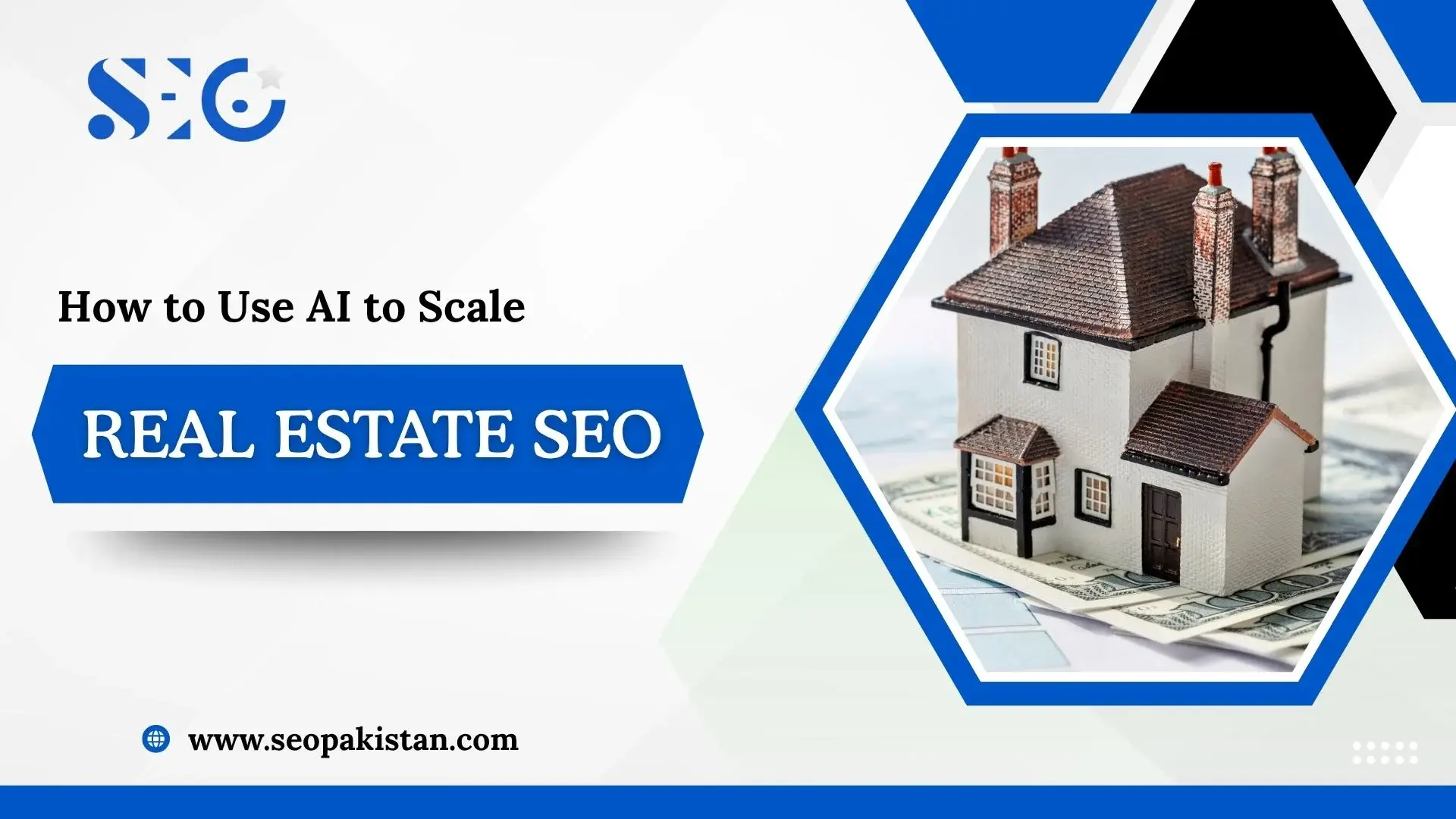Think about it: You are a real estate pro, juggling properties across dozens, maybe even hundreds, of markets. Each demands unique, hyper-local SEO content. Imagine the endless grind of writing for every neighborhood, city, and zip code. Manually, it’s a losing battle; you simply can’t keep up, let alone dominate local search. But what if you didn’t have to? What if an invisible, tireless assistant handled it all?
Artificial intelligence completely changes the game for real estate SEO. Modern AI tools can rapidly generate hundreds of geo-targeted pages, conduct extensive keyword research, and optimize technical elements at incredible speeds.
This transformation, central to AI for Real Estate SEO, goes beyond basic content. AI workflows analyze competitors, automate internal linking, and generate structured data for superior search visibility. Months of manual SEO effort can now be achieved in days or weeks.
In this guide, we will walk you through a systematic approach to implementing AI-driven SEO automation tailored specifically for real estate businesses.
The Scale Challenge: Why Manual SEO Is Unsustainable
Traditional real estate SEO demands creating distinct content for every target location. A company serving 50 markets needs unique landing pages, market reports, and listing descriptions for each area. Manual content creation for this scale typically requires:
- 3-5 hours per locally-optimized landing page
- Weekly market reports requiring 2-4 hours of research and writing per location
- Custom listing descriptions averaging 15-30 minutes each
- Monthly keyword research and content gap analysis across all markets
The mathematics reveal the impossibility. A modest 50-market strategy requires over 400 hours monthly for basic content maintenance. Most real estate teams cannot sustain this workload while maintaining content quality and consistency.
The AI Advantage: Introducing AI-Powered Workflow
AI automation addresses the volume challenge through systematic content generation and optimization processes, significantly enhancing Real Estate Investor SEO. Modern language models can process local market data, property specifications, and keyword clusters to produce unique, SEO-optimized content at machine speed.
The workflow operates on three core principles: template-based consistency, data-driven personalization, and quality control checkpoints. Teams establish content frameworks and quality standards, while AI handles the repetitive generation and optimization tasks.
Automating Keyword Research and Cluster Mapping
Rapid Keyword Discovery
How can you instantly identify hundreds of profitable long-tail keywords for every target market? What specific prompts generate the most comprehensive keyword variations?
Modern AI tools like SE Ranking, Frase, and SEMrush excel at expanding core transactional keywords into comprehensive long-tail variations. The process begins with feeding a primary keyword like “sell my house fast in [City]” into these specialized AI platforms.
- Primary expansion: Generate location-specific variations using neighborhood names, zip codes, and regional identifiers
- Intent-based clustering: Create keyword groups based on seller motivations (foreclosure, divorce, job relocation, inheritance)
- Competitive analysis integration: Identify gaps where competitors rank for valuable terms you currently miss
- Search volume validation: Cross-reference AI-generated keywords with actual search data to prioritize high-opportunity terms
Automated Content Hub Structuring

Which keywords should group together into comprehensive content hubs? How do you ensure logical site architecture while maintaining topical authority?
AI-powered clustering tools, such as Surfer SEO, Keyword Cupid, and MarketMuse, analyze semantic relationships between keywords to create logical content groupings. This process eliminates guesswork in determining which keywords belong on the same page versus separate pages.
- Topical authority mapping: Group related keywords that strengthen overall domain expertise in specific real estate niches
- User intent alignment: Cluster keywords representing similar buyer or seller motivations and decision-making stages
- Competition-based grouping: Identify keyword clusters where competitors show weakness, creating target-rich content opportunities
Competitive Opportunity Analysis
AI for Real Estate SEO helps you uncover the precise keywords your competitors rank for, presenting immediate opportunities. It also identifies content gaps that can be quickly filled for maximum traffic impact.
AI-driven competitive analysis with tools like Ahrefs, Brandwatch, and Visualping reveals precise keyword opportunities by comparing your current rankings against local and national real estate competitors.
- Local competitor mapping: Analyze ranking patterns of direct geographic competitors to identify underserved keyword opportunities
- National player analysis: Compare your content coverage against major real estate platforms to find niche opportunities
- Content format gaps: Identify whether competitors use blog posts, landing pages, or resource pages for target keywords
- Authority assessment: Evaluate the content quality and depth that competitors provide for high-value keywords
The Hyper-Local Content Generation Engine
Mass-Producing Geo-Targeted Landing Pages

How can you generate hundreds of unique “We Buy Houses in [Neighborhood]” pages without triggering duplicate content penalties? What specific elements ensure each page provides genuine local value?
AI content generation excels at creating location-specific landing pages when provided with structured local data and clear content frameworks. The key lies in feeding unique local information into each generation request.
- Template standardization: Establish consistent page structures while varying local details, market statistics, and neighborhood-specific benefits
- Local data integration: Incorporate unique demographic information, recent sales data, and neighborhood characteristics for each target area
- Differentiation strategies: Use varying content angles (market trends, buyer benefits, seller advantages) to ensure substantial content differences between pages
- Quality control checkpoints: Implement human review processes to verify local accuracy and eliminate obvious AI-generated patterns
Automated Local Market Reports
What local data sources provide the most valuable content for AI-generated market reports? How frequently should you publish these reports to maximize SEO impact?
Data-driven content creation leverages AI tools like BuzzBoard and Whatagraph to process structured information and generate comprehensive market analysis. These reports provide inherent local value while targeting valuable long-tail keywords.
- MLS data processing: Feed recent sales data, price trends, and inventory levels into AI systems to generate current market snapshots
- Economic indicator integration: Incorporate local employment data, population growth, and development projects for a comprehensive market context
- Visual content enhancement: Use AI to suggest chart types, infographic elements, and data visualizations that enhance report engagement
AI for Technical SEO and Site Structure
Internal Linking Automation
Which pages on your site would benefit most from strategic internal links? How can you identify and implement these connections without manual analysis of hundreds of pages?
AI-powered internal linking tools like LinkStorm, Link Whisper, and Internal Link Juice analyze your entire site structure to identify optimal link placement opportunities. These tools help accelerate page authority distribution across your local content network.
- Authority flow optimization: Identify high-authority pages that should link to newer local content to accelerate ranking potential
- Topical relevance matching: Connect related content pieces based on semantic similarity and user journey logic
- Anchor text optimization: Generate natural, keyword-rich anchor text variations that strengthen target page rankings
- Link opportunity prioritization: Focus linking efforts on pages with the highest traffic and conversion potential
Automated Meta Data Generation
AI tools like Jasper, Copy.ai, and SEOptimer can generate meta titles and descriptions. However, this process requires precise prompting to create compelling, click-worthy titles and descriptions that maintain local relevance and keyword optimization, especially when creating unique content for hundreds of similar pages.
- Title tag optimization: Generate compelling titles that include target keywords, location identifiers, and emotional triggers within character limits
- Description enhancement: Create informative meta descriptions that highlight unique value propositions and include clear calls-to-action
- Click-through rate optimization: Test different messaging approaches to identify which meta element styles generate the highest click-through rates
Structured Data Generation
Implementing comprehensive schema markup across hundreds of local pages, even without manual coding expertise, is now streamlined. AI tools like AIOSEO and JSON-LD Playground can generate and implement structured data markup to enhance search result appearance and provide search engines with clear content context.
- LocalBusiness schema implementation: Generate location-specific business information markup for each target market
- Real estate listing markup: Create property-specific structured data that enhances listing appearance in search results
- Review and rating integration: Implement review schema to display star ratings and testimonials in search results
- FAQ schema optimization: Generate question-and-answer markup for common local real estate inquiries
Operationalizing the AI Workflow
The Human-in-the-Loop Model
While automation is a core benefit of using AI for Real Estate SEO, human oversight remains essential for maintaining quality and accuracy. Certain checkpoints are necessary to ensure that AI-generated content aligns with brand standards and local market specifics.
Successful AI implementation requires a clear division between automated processes and human oversight responsibilities. Strategic decision-making, local fact verification, and brand voice consistency remain human responsibilities.
Human-retained roles include:
- Strategic keyword prioritization and market selection decisions
- Local market knowledge verification and fact-checking processes
- Brand voice consistency review and content quality assessment
- Performance analysis and strategy adjustment based on results
AI-automated roles include:
- Bulk content generation based on established templates and guidelines
- Technical SEO implementation across multiple pages simultaneously
- Keyword research expansion and competitive analysis data gathering
- Internal linking suggestion and meta data generation at scale
ROI of SEO Automation: Measuring Success
The quantifiable benefits of AI-powered SEO automation extend beyond simple time savings. Real estate businesses implementing these workflows typically experience compressed lead generation timelines and improved cost efficiency across their marketing operations.
Traditional manual SEO approaches require 3-6 months to produce meaningful organic traffic increases. AI automation compresses this timeline to 4-8 weeks for initial results, with continued acceleration as content volume scales.
Taking Action: Your Next Five Content Clusters
Implementing AI-powered SEO automation begins with selecting five high-priority local markets and establishing systematic content production workflows for each area. Focus on markets with proven demand signals and manageable competition levels for initial testing.
Begin with automated keyword research and content hub planning for these target markets. Use AI tools to generate comprehensive keyword lists and competitive analysis reports that inform your content creation priorities.
Establish quality control processes and brand voice guidelines before scaling content generation. These frameworks are crucial for effectively using AI for real estate SEO, ensuring consistent quality as automation volume increases across additional markets and content types.
Monitor performance metrics closely during initial implementation to identify which AI-generated content types produce the strongest organic traffic and lead generation results. Visit SEO Pakistan to learn more and optimize your strategy today!
Frequently Asked Questions
Will Google penalize AI-generated real estate content?
No, Google does not penalize content solely for being AI-generated. Google’s systems reward content that is helpful, original, and demonstrates expertise. Content created by AI to manipulate rankings is a violation of spam policies.
How quickly does AI SEO produce organic traffic leads?
AI automation can compress the timeline to 4-8 weeks for initial ranking improvements. This is because AI enables the production of a high volume of geo-targeted content required by local authorities much faster than manual effort.
Is using an AI tool cheaper than hiring an SEO agency?
Yes, investing in a powerful AI tool for bulk content generation is generally more cost-effective and scalable than paying an SEO agency for continuous, high-volume manual content creation for hundreds of local pages.
Can AI assist with the visual side of real estate marketing?
Yes. Tools like Virtual Staging AI can digitally furnish empty rooms to make listings more appealing. Other AI-powered systems













